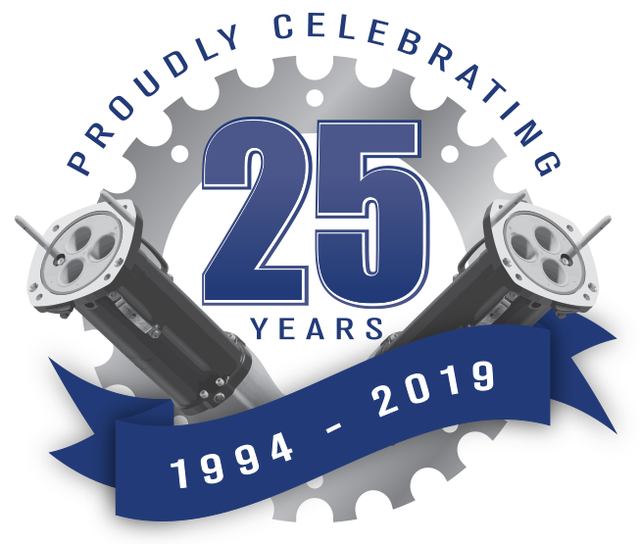INSIGHT
Can South Africa’s new leader reinvigorate its battered mining sector?
South Africa’s mining industry is struggling amid falling commodity prices, legislative uncertainty, union unrest and energy insecurity; yet the industry is hopeful the newly elected president, Cyril Ramaphosa, a former mining company director and union leader, will save the day. But can he deliver? Heidi Vella investigates.


South Africa is home to some of the world’s largest gold, platinum and diamond deposits. Yet production in the country’s mining sector is in decline, hampered by depleting reserves, falling precious metal prices, rising costs, trade union unrest, l–egislative confusion and a lack of foreign investment that have resulted in financial loss and mine closures.
With the election of former Lonmin non-executive director and general secretary of the National Union of Mineworkers, Cyril Ramaphosa, to government in May, hope has been reignited in the sector.
Ramaphosa, who has led the country since he became head of the ruling ANC party after his controversial predecessor Jacob Zuma resigned in February 2018, has been well received by the industry. Industry stakeholders are encouraged by his promises to ‘revitalise’ the sector, stamp out government corruption and attract $100bn in foreign investment to the country over the next five years, but also because of his experience with trade unions.
More than half of the country’s coal mines are managed by pro-Russian separatist militia.Credit: DmyTo/Shutterstock.
More than half of the country’s coal mines are managed by pro-Russian separatist militia.
Credit: DmyTo/Shutterstock.
Better investor sentiment
So far, Ramaphosa’s first year in office has seen some positivity return to the sector. Roger Baxter, CEO of the Minerals Council South Africa, says Ramaphosa has begun re-establishing trust with investors and the global mining community, which had been ‘seriously damaged by his predecessor’. Among other things, corruption in the mining permitting system and turnaround times for processing licensing applications has been improved, he says.
“Ramaphosa has begun re-establishing trust with investors and the global mining community”
This is evidenced in South Africa’s ranking by the 2018 Fraser Institute’s critical Policy Perception Index (PPI), which measures overall policy attractiveness. Last year, the country ranked 56 out of 83 jurisdictions, compared with coming 81st out of 91 the previous year.
“We hope these efforts continue; in our view, the country needs to aim for a top quartile ranking as soon as possible,” says Baxter.

AusProof is celebrating 25 years of business in Australia in 2019.
New leader but old challenges
At the end of May, Ramaphosa faced his first test in office as he chose his new cabinet; figures that will be instrumental in overcoming the many challenges hindering the mining sector.
The Minerals Council South Africa welcomed Ramaphosa’s decision to reinstate Gwede Mantashe as Minister of Mineral Resources, saying it provided necessary ‘consistency’. However, despite Ramaphosa’s promises to stamp out government corruption ‘riskier figures’ still reside at the top of government and temper investment sentiment, says Verisk Maplecroft research analyst Indigo Ellis.
These figures include deputy president, David Mabuza, who was investigated and cleared by the government corruption commission just before being added to the cabinet, and Zuma’s ex-wife, Nkosazana Clarice Dlamini-Zuma, who has been heavily implicated in state capture in the past.
“While Ramaphosa is considered a very positive person to have atop the ANC generally, these and other figures within the cabinet will likely continue to temper pro investor policymaking because of their exposure to state capture and potential for infighting which may slow policy making,” says Ellis.

AusProof is celebrating 25 years of business in Australia in 2019.
Unbundling Eskom
According to Ramaphosa, in the last year the government has attracted $20bn of investment commitments, in part from three mining companies. But if he is to continue on this trajectory, he’ll need to mitigate persistent risk factors for mining investors – most notably rapidly rising electricity prices, amid uncertainty of supply, from state energy provider Eskom.
Poor management of Eskom, which provides the majority of South Africa’s electricity supply, has seen the power company plunge into debt and crisis. To tackle its financial woes, company executives had asked the government to implement price increases of up to 17% - a move The Minerals Council said would put a third of the country’s 450,000 miners out of work. In the end, prices were increased by 13.8 % but Eskom has said this is not enough in the long term.
“In the last year the government has attracted $20bn of investment commitments, in part from three mining companies.”
A key policy of Ramaphosa’s is to unbundle Eskom for privatisation to improve its performance, which will likely see it move away from coal towards more renewable sources of energy. However, doing this is ‘incredibly politically sensitive’ says Ellis, as it may result in job losses in the coal sector.
In this regard, Mantashe, who also controls Eskom, faces a ‘complete conflict of interest’, she says. “The strength of the labour unions needs to be tempered for the unbundling of Eskom to happen, which is crucial to both the economy and the mining industry.”
While the increasing cost and unreliability of electricity isn’t in isolation the reason for mine closures in the country, it is a significant factor in driving up costs amid thinning profit margins, creating "tailwinds in many directions", says Ellis.
“Many companies have been forced to find power from elsewhere - AngloGold Ashanti has used a combination of solar and hydro - but the cost of electricity, combined with depleting reserves that are more expensive to extract and challenging labour costs is causing closures and stoppages,” says Ellis.
Furthermore, Ramaphosa has also signed a new Carbon Tax Act into law that came into effect in June. The tax aims to reduce harmful emissions by introducing the ‘polluter-pays principle.’ However, mining companies, steelmakers and Eskom believe it will erode profit and push up the price of electricity further. Baxter says it is "problematic."

AusProof is celebrating 25 years of business in Australia in 2019.
Mine closures
In combination, these issues are seeing more and more mine closures. In May, AngloGold Ashanti said it will sell its last South African mine, Mponeng, amid depleting reserves, falling gold commodity prices and rising costs. The sale is the final step in AngloGold’s withdrawal from the country after it sold and shut other mines to stem its losses. Lonmin said in May it plans to cut 4,100 workers at platinum mines that it is closing down.
“Maybe in isolation these problems - rising costs, union unrest, depleting reserves - wouldn’t be a game changer as mining companies are used to operating in onerous environments, but miners, who are accustomed to working in South Africa, are having the carpet pulled from under them, which may be why AngloGold has decided to withdraw,” says Ellis.
In particular, Labour unrest is also creating a volatility in the industry. Around 15,000 employees at a Sibanye-Stillwater gold mine went on a five month strike in late 2018, following a failure to agree a wage deal with the company. The episode reportedly cost the company $70.7m in lost production, and divided all parties involved.
However, in the current environment, disputes between unions and companies are unlikely to disappear and are an issue that Ramaphosa will probably have little power to control, says Ellis.
“Ramaphosa’s hands are somewhat tied here, largely because of the Tripartite Alliance
that maintains the ANC’s rules; they have teamed up with the Congress of South African Trade Unions, one of the largest workers’ unions in south Africa, who the government will want to keep on side,” she explains.
Upcoming platinum group metal (PGM) wage negotiations are also likely to create further challenges. Therefore, unions themselves pose a continued risk factor for mining companies operating in South Africa.

AusProof is celebrating 25 years of business in Australia in 2019.
Persistent disagreements
Other challenges revolve around progress of the new Mining Charter, which is in the process of being finalised. Areas of dispute still reside around black empowerment transactions.
Currently, around 30% of a mining company’s shares must be owned by black investors. However, mining companies have argued they should not be required to maintain that level should black investors subsequently sell any of their shares. In March, mining companies requested a judicial review of the charter and consultations are ongoing.
“As evidenced there are plenty of battles ahead that must not be under estimated; the biggest hurdle being privatising Eskom.”
Furthermore, investors are also nervous about the government’s land reform programme that will see the constitution amended to allow for the expropriation of land without compensation. Miners fear this could lead to confiscation of their assets.
However, Baxter says while this is a critical issue that needs an "appropriate balance struck between citizens’ legitimate expectations, food security issues and investor confidence", he adds: “There is no suggestion that mining assets are in danger of nationalisation or any other form of expropriation.”
Resolving these issues, however, could prove challenging with the more ‘shadier elements’ of the government, says Ellis.

AusProof is celebrating 25 years of business in Australia in 2019.
Future outlook
Asked whether Ramaphosa’s government can reinvigorate investor confidence in South Africa’s mining sector Baxter says simply “yes”.
“We remain confident that continuing engagement can lead to a meeting of minds on these and other issues,” he says.
But as evidenced there are plenty of battles ahead that must not be under estimated; the biggest hurdle being privatising Eskom, says Ellis.
“Privatisation of certain elements of an unbundled Eskom would do wonders for mining investor sentiment moving forward, as will continuation at the top with Mantashe - who has proved himself to be a good negotiator but still willing to listen to mining companies,” she says.
“But if Ramaphosa manages to unbundle the company, the outlook for labour unrest will rise, particularly for coal as coal mining, and the unions will try to stem those losses as much as possible,” she adds.

AusProof is celebrating 25 years of business in Australia in 2019.

